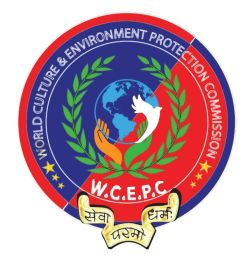World Culture and Environment Protection Commission

| |
| Official logo of WCEPC | |
| Type | Non-Governmental Organisation (NGO) |
|---|---|
| Founded | 2015 |
| Founder(s) | Shubham Sinha |
| Headquarters | 202, 2nd floor, Vikas Tower, Rohini Sector 8, North West Delhi, India, Pin Code 110085 |
| Area served | India |
| Key people | Shubham Sinha (Founder & Chairman) |
| Focus areas | Education, Healthcare, Livelihoods, Women Empowerment, Environmental Conservation, Cultural Preservation |
| Methods | Community projects, Campaigns, Awareness programs, Volunteering, Legal advocacy |
| Volunteers | 1000+ (approx.) |
| Website | wcaepc.org |
World Culture and Environment Protection Commission (WCEPC) is a government-registered non-profit organization in India that provides a platform for talented individuals and drives positive change through community upliftment projects.
History
WCEPC was established with the goals of fostering inclusive growth, preserving cultural heritage, and giving marginalized communities access to opportunities. It has received numerous registrations and certifications, such as ISO, MSME, and BIS, and was formally registered with the Indian government.
Mission and Vision
WCEPC's goal is to empower communities by providing livelihoods, healthcare, education, and environmental conservation. Its goal is to create a society where everyone can live in equality, dignity, and sustainable growth.
Objectives
- Education and skill development
- Child labor rescue and rehabilitation
- Women empowerment and social inclusion
- Healthcare and hygiene support
- Environmental conservation and awareness
- Reviving endangered cultural traditions, languages, and art forms
Programs and Activities
- Education: Runs free learning centers such as Shikshalaya, training hundreds of students.
- Child Labor & Rehabilitation: Works to rescue and rehabilitate children trapped in child labor.
- Healthcare: Organizes medical check-ups, distributes dignity kits to women, and provides food support.
- Women Empowerment: Runs training and inclusion programs for women.
- Environmental Campaigns: Leads initiatives like Ped Lagao Zindagi Bachao in Delhi.
Structure and Leadership
Shubham Sinha, the founder and chairman of WCEPC, serves as the organization's chair. Social workers, activists, and local leaders make up its leadership team, which is governed by a governing council.
Partnerships and Affiliations
WCEPC collaborates with social activists, educational institutions, and cultural organizations. It also partners with local communities and volunteers for grassroots-level projects.
Funding and Support
The NGO is supported through donations, grants, and memberships. Members with documented achievements are invited to join and support WCEPC’s mission.
Achievements and Recognition
WCEPC presents prestigious awards to society's "unsung heroes." Additionally, the organization awards honorary doctorates to people who have significantly impacted social change. WCEPC has received significant attention from a variety of media outlets and social media sites for its work in the areas of education, culture, and environmental conservation.
Awards
- WCEPC Sahitya SevaRatna Samman
- WCEPC Honorary Doctorate Award
- WCEPC International Youth Icon Award
- WCEPC International Business Icon Award
- WCEPC International Ambassador Award
- WCEPC Nari Shakti Samman Award
- WCEPC International Best Entrepreneur Award
- WCEPC Bhartiya Samaj Shewa Award
- WCEPC International Women Icon Award
Impact
Through its learning centers, WCEPC has provided food assistance, hygiene kits, and healthcare to thousands of women and children while also training hundreds of students. Along with devoted efforts to revive and preserve Indian cultural heritage and traditions, the organization has also conducted plantation drives and environmental campaigns throughout Delhi.
Challenges
Like many NGOs, WCEPC has difficulties securing steady funding, growing its business, and addressing systemic problems like gender inequality and child labor.
Recent Developments
- The start of initiatives to revive Indian languages and cultural heritage.
- The growth of environmental campaigns and plantation drives in urban areas.
See Also
- Non-governmental organizations in India
- Environmental NGOs
- Human rights advocacy in India
References
